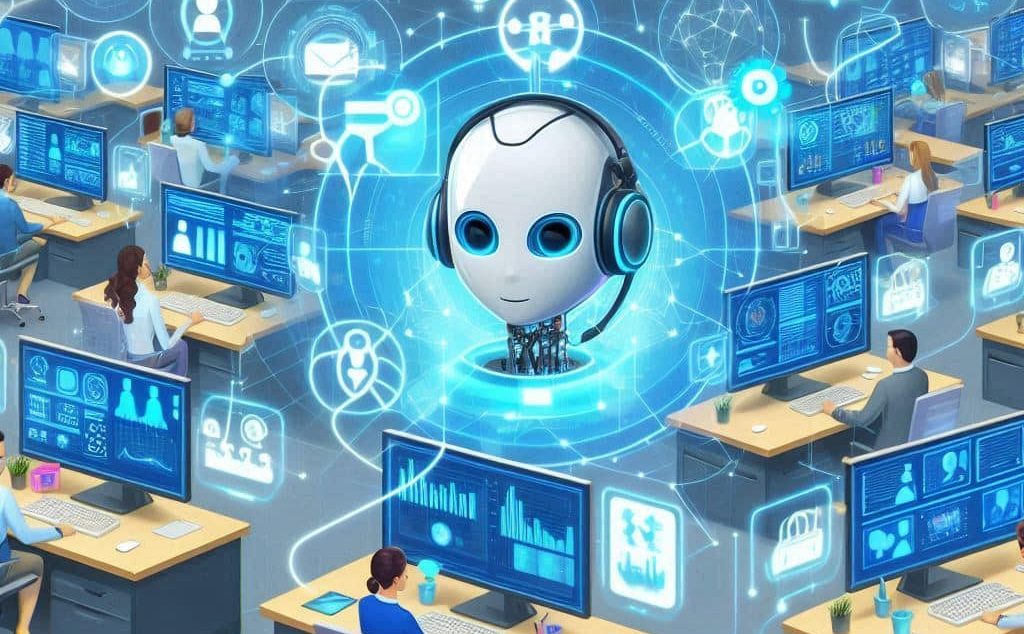Providing exceptional customer experiences is more critical than ever in this modern day. Companies are increasingly turning to advanced technologies to meet and exceed customer expectations. Artificial Intelligence (AI) is at the forefront of this technological evolution, transforming how businesses interact with their customers. Salesforce CRM, a leading customer relationship management platform, has integrated AI capabilities to revolutionize customer experience. This article delves into how AI enhances Salesforce CRM and reshapes customer interactions.
Introduction to AI in CRM
AI involves the simulation of human intelligence processes by machines, particularly computer systems. It encompasses various technologies, including machine learning, natural language processing, and predictive analytics. In the context of CRM, AI helps businesses analyze vast amounts of data, automate routine tasks, predict customer behavior, and personalize interactions. By integrating AI, Salesforce CRM empowers businesses to deliver smarter, more efficient, and highly personalized customer experiences.
Enhancing Customer Experience with Salesforce Einstein
Salesforce Einstein is the AI layer of Salesforce, designed to bring advanced AI capabilities directly into the Salesforce platform. Einstein’s suite of AI features enhances various aspects of CRM, from sales and service to marketing and analytics. Here’s how Einstein transforms customer experience:

1. Predictive Analytics and Insights
Einstein Predictive Analytics provides deep insights into customer behavior and future trends. By analyzing historical data, Einstein predicts outcomes such as sales forecasts, customer churn, and buying patterns. This predictive capability enables businesses to proactively address customer needs and preferences, resulting in more personalized and timely interactions.
For example, a sales team can use predictive analytics to identify high-potential leads, allowing them to focus their efforts on prospects with the highest likelihood of conversion. Similarly, customer service teams can anticipate issues before they arise, providing preemptive solutions that enhance customer satisfaction.

2. Personalized Marketing Campaigns
Marketing is a crucial touchpoint in the customer journey, and AI-driven personalization can significantly enhance its effectiveness. Einstein’s AI capabilities allow marketers to create highly targeted campaigns based on customer data and behavior. By segmenting audiences and predicting the best times to engage with them, businesses can deliver relevant content that resonates with individual customers.
For instance, Einstein can analyze email engagement patterns to determine the optimal send times for each recipient, increasing the chances of the email being opened and acted upon. This level of personalization not only boosts marketing ROI but also strengthens customer loyalty and trust.
3. Intelligent Customer Service
Customer service is another area where AI makes a profound impact. Einstein Bots, for instance, automate routine inquiries and tasks, providing instant responses to common customer questions. This not only reduces the workload on human agents but also ensures customers receive quick and accurate information. Moreover, Einstein’s AI capabilities extend to case classification and routing. By automatically categorizing and prioritizing support tickets, Einstein ensures that critical issues are addressed promptly and by the most suitable agents. This leads to faster resolution times and improved customer satisfaction.
4. Enhanced Sales Productivity
AI-powered tools within Salesforce CRM significantly enhance sales productivity by automating time-consuming tasks and providing actionable insights. Einstein Activity Capture, for example, automatically logs emails and calendar events, reducing the administrative burden on sales reps. This allows them to focus more on building relationships and closing deals.
Additionally, Einstein’s Opportunity Scoring feature analyzes various factors to predict the likelihood of deal closure. Sales reps can prioritize their efforts on opportunities with the highest scores, optimizing their time and resources. This data-driven approach ensures a more efficient and effective sales process.

Real-World Application and Success Stories
Many businesses across different industries have successfully implemented AI-powered Salesforce CRM to revolutionize their customer experience. Here are a few examples:
1. Financial Services
A leading financial services company leveraged Salesforce Einstein to enhance its customer service operations. By implementing Einstein Bots, the company automated responses to frequently asked questions, reducing wait times and improving customer satisfaction. Additionally, predictive analytics helped identify at-risk customers, allowing the company to proactively offer personalized solutions to retain their business.

2. Retail
A major retail brand used Einstein to personalize its marketing efforts. By analyzing customer purchase history and behavior, the company created targeted email campaigns with product recommendations tailored to individual preferences. This resulted in higher engagement rates, increased sales, and improved customer loyalty.
3. Healthcare
In the healthcare sector, a hospital network utilized Einstein Analytics to optimize patient care. By analyzing patient data, the hospital identified patterns and trends that helped predict patient needs and allocate resources more effectively. This led to improved patient outcomes and a more efficient healthcare delivery system.

Future Trends: AI and the Evolution of CRM
The integration of AI into Salesforce CRM is just the beginning. As AI technology continues to advance, we can expect even more innovative applications that will further enhance customer experience. Here are some future trends to watch:
1. Advanced Natural Language Processing (NLP)
Future advancements in NLP will enable even more sophisticated interactions between AI and customers. AI-powered chatbots and virtual assistants will understand and respond to complex queries with greater accuracy, providing a more human-like customer service experience.
2. Enhanced Predictive Capabilities
As AI algorithms become more refined, predictive analytics will offer even deeper insights into customer behavior. Businesses will be able to anticipate customer needs with unprecedented accuracy, allowing for highly personalized and proactive engagement.
3. Seamless Omnichannel Experiences
AI will play a crucial role in creating seamless omnichannel experiences. By integrating data from various touchpoints, AI will ensure consistent and personalized interactions across all channels, from online platforms to in-store experiences.

4. Ethical AI and Data Privacy
As the use of AI in CRM grows, so does the importance of ethical AI practices and data privacy. Businesses will need to prioritize transparency, fairness, and data security to build and maintain customer trust. AI will assist in compliance by automating data protection and ensuring ethical use of customer information.
Conclusion
AI integration into Salesforce CRM is transforming customer experience by enabling businesses to utilize tools like predictive analytics, personalized marketing, intelligent customer service, and enhanced sales productivity. As AI technology advances, businesses that adopt AI-powered Salesforce CRM will be better positioned to excel in a competitive, customer-focused market, exceeding customer expectations and building long-term success.


